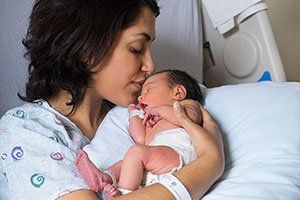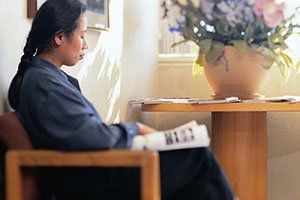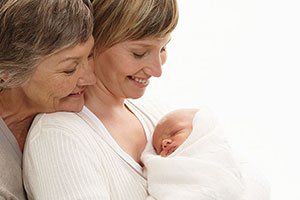First Pregnancy: What New Moms Need to Know About After Birth Care
- By Admin
- •
- 12 Sep, 2018
- •

Everything about your first pregnancy is new, and even though you have tons of information available from your doctor, books, and the internet, you still can't know exactly what to expect. Many women put a lot of research into preparing for labor and delivery, but they aren't as prepared for the days and weeks of recovery after bringing the baby home.
After birth recovery is an important part of completing a healthy pregnancy. Here's what you need to know about recovering from pregnancy and delivery.
Lactation and Feeding
As soon as your baby is born, your baby needs independent feeding. However, first-time moms may not be familiar with breastfeeding and can struggle with getting the baby to latch.
Breastfeeding in an inexpensive and nutritional food source for your infant, and taking care of your breasts and getting your baby to latch properly can help you through the first few weeks until you become accustomed to it. To help encourage milk flow and production:
- Feed your baby as often as they are hungry. Most women only produced gold-colored, nutrient dense colostrum during the first few days following delivery. Your baby will seem hungry often and may want to feed frequently. This demand can help you have an ample milk supply when your milk does come in later and helps to regulate supply.
- Massage. Massage can help work out sore places and blocked ducts during the initial over-supply of milk when your milk comes in. You can also place cold cabbage leaves on your breasts to ease swelling and discomfort.
- Eat well. Milk production takes a lot of extra calories. Many women are concerned with weight loss after birth and may feel like restricting calories right away. However, milk production can go down if you're not eating enough. Wait to actively diet until after you have a regular established supply.
Not all women can or want to breastfeed. You can talk to your doctor about how to decrease your supply safely. If you ever experience a fever and flu symptoms, call your doctor immediately. These are the early signs of a condition called mastitis, and the infection can escalate quickly without treatment.
Healing and Pain Relief
Depending on how your labor went and the method of delivery, you may only be a little sore after birth or you might experience more severe pain. Your doctor will prescribe you pain medications, especially if you had a C-section, tearing, or an episiotomy. These pain medications can sometimes cause constipation, so you may also need a stool softener for a while.
Besides pain pills, you can find pain relief in other areas. For muscle soreness, be sure to get plenty of rest. You can ease vaginal pain by using ice packs or numbing spray to take away the sting of tears or cuts. Pads soaked in witch hazel can also help relieve pain. You may also enjoy taking a warm bath after you've had a few days for wounds to close over.
Your uterus will continue to shrink as you recover from pregnancy. You may experience abdominal cramping intermittently for several days, and the pain can be more pronounced during breastfeeding.
If you had a C-section, your doctor may provide you an abdominal support belt to help apply pressure to the incision as it heals.
Emotional Health and Baby Blues
Many women experience sadness immediately postpartum. A sense of anxiety, loss, or despair is common. These emotions are caused by drastic hormonal changes as your body adapts to non-pregnancy. However, these feelings should resolve shortly after birth.
If you experience drastic mood changes, irritability, pronounced sadness, and think about harming your baby or yourself, you should contact your OBGYN immediately. Postpartum depression affects 1 out of 7 mothers, and it can set in any time in the year after delivery.
For more information on taking care of yourself and your baby after pregnancy, contact James E. Ramseur, Jr MD.






